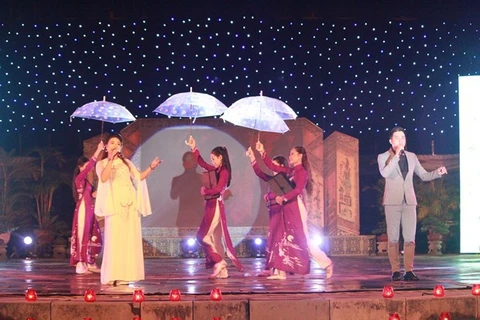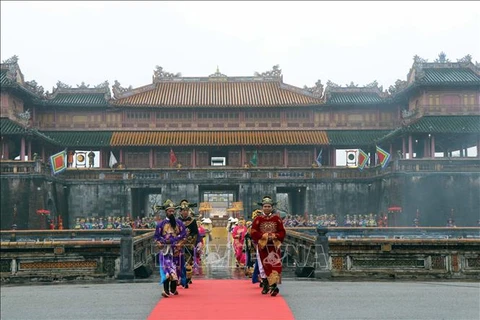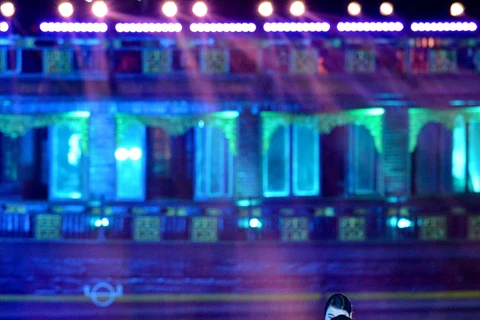 The province debuts the Hue Festival 2024 by performing the Ban Soc (royal calendar delivery) ceremony. (Photo: VNA)
The province debuts the Hue Festival 2024 by performing the Ban Soc (royal calendar delivery) ceremony. (Photo: VNA) Themed “Cultural heritage with international integration and development”, the event will feature an array of standout festivals, including Spring Festival from January to March, Summer Festival from April to June, Autumn Festival from July to September, and Winter Festival from October to December, and hundreds of response activities.
Director of the Hue Monuments Conservation Centre Hoang Viet Trung said that the festival will continue capitalising on the royal, religious and traditional festivals while aiming at developing the new ones, turning them into local tourism products that help promote the province’s socio-economic development.
The province debuted the Hue Festival 2024 by performing the Ban Soc (royal calendar delivery) ceremony – the event that kings under the Nguyen Dynasty organised to distribute calendars for royal mandarins at Ngo Mon (Noon Gate). Ordinary people received the calendar in their localities.
Hue Festival, held for 24 years, is one of the key international art event in Vietnam.
The local administration has been reviving the wearing of traditional ao dai (long dresses) in the community on festivals and special days of the year to promote the beauty and value of the Hue-based 300-year-old dress.
Hue, the imperial capital in Vietnam for over 100 years, has been a unique destination in central Vietnam with its five UNESCO heritage: the ancient citadel relic complex, Hue royal court music, Nguyen Dynasty’s wooden blocks, Nguyen Dynasty’s royal administrative documents, and literature on Hue royal architecture./.
VNA























